Winner Anacona ready for his own shot at glory
Movistar domestique calls for more investment in Colombian cycling
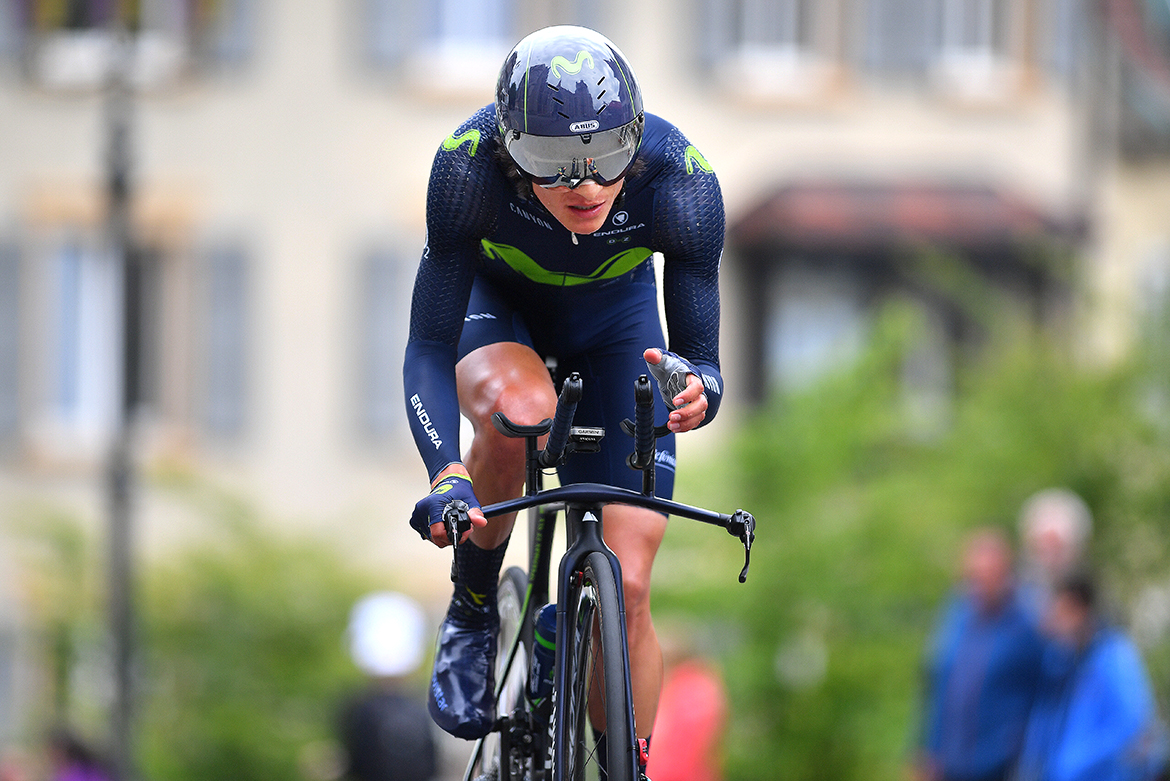
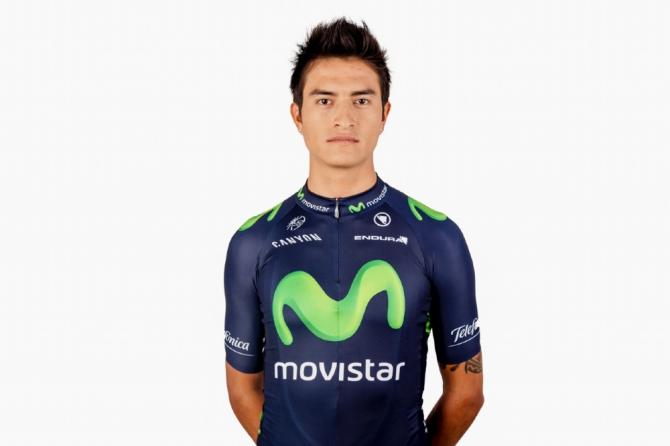
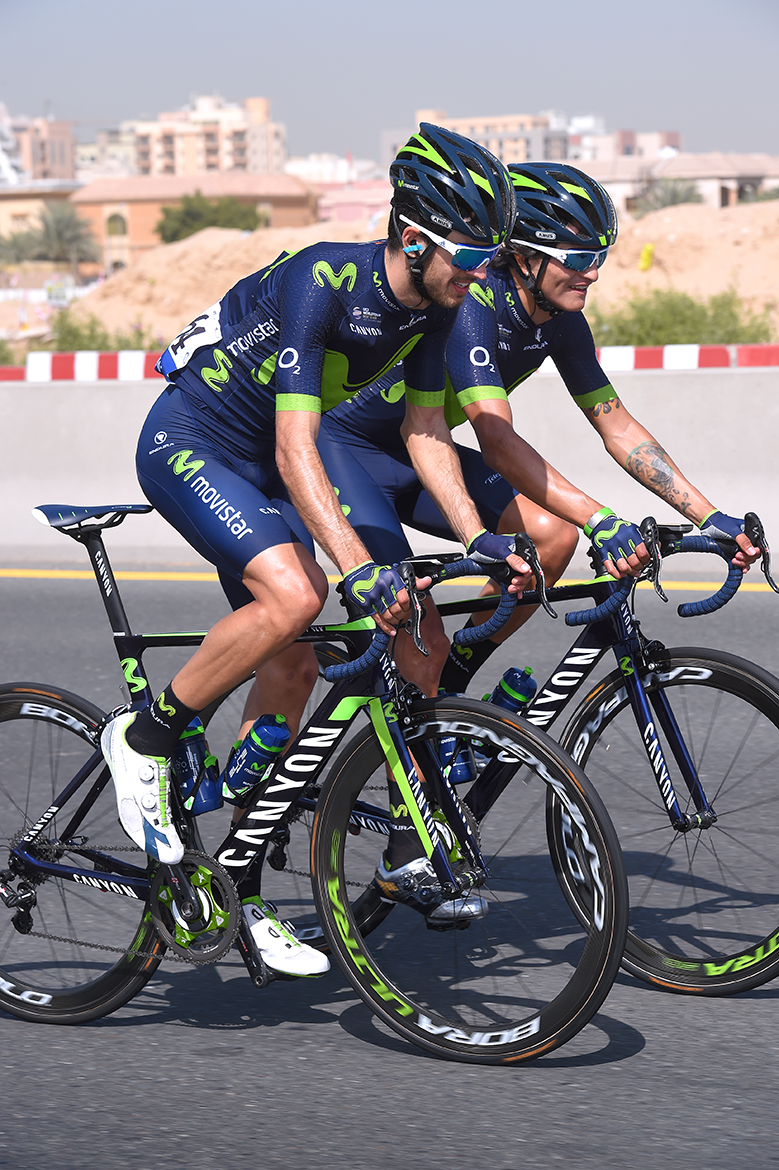
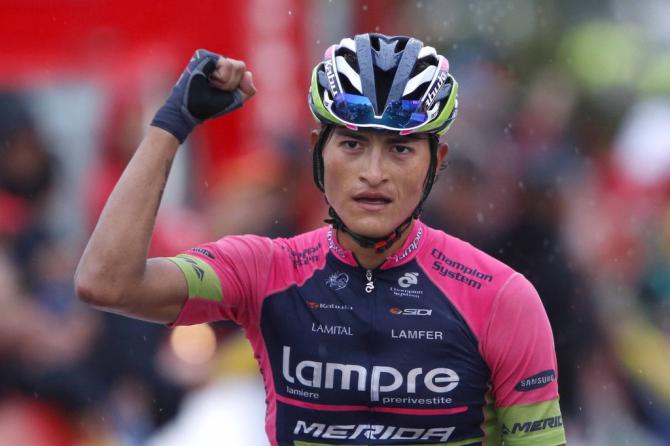
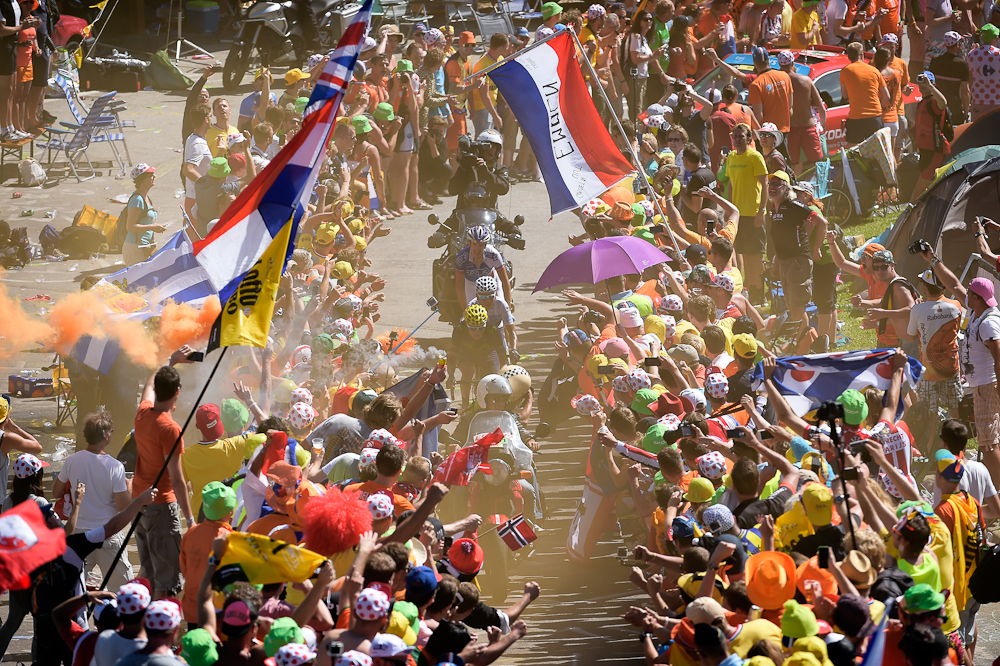
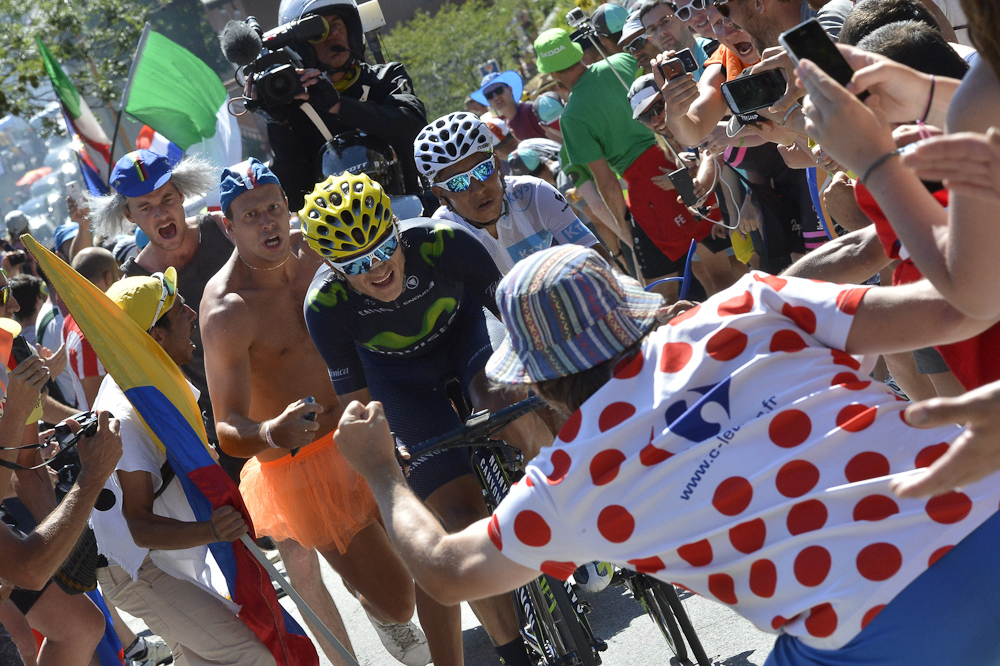
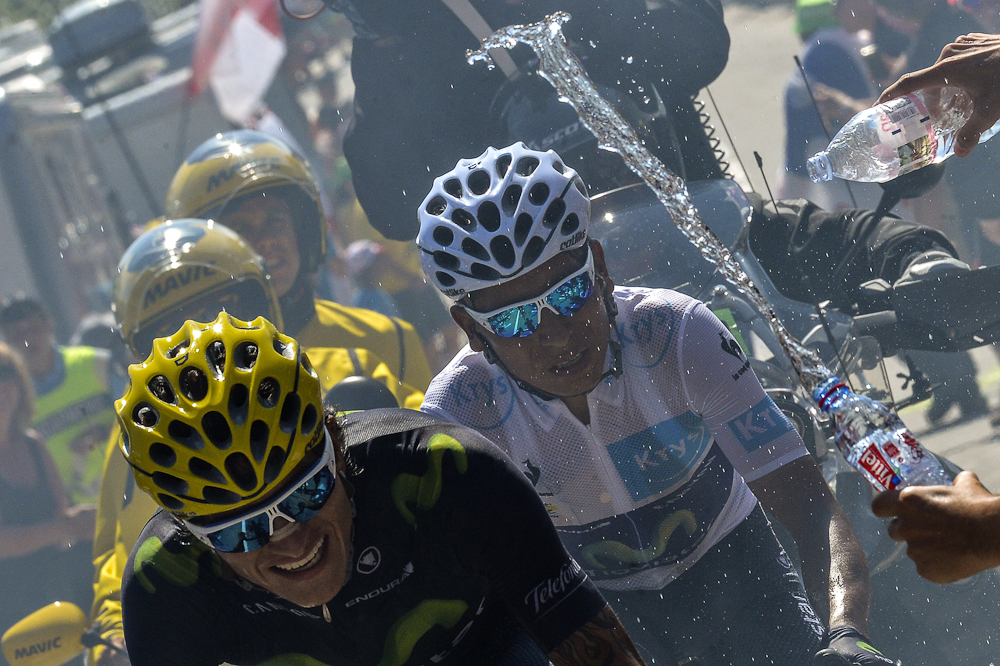
Colombia’s Winner Anacona is one of Movistar’s most coveted climbers but as he approaches 30 he feels the time has come to balance his valued work as a domestique de luxe with his own, occasional, shot at glory.
Cyclingnews (CN): Less than a month ago, when they unveiled the Tour de France route and you saw that L'Alpe d’Huez, where you played a key role for Nairo Quintana and Alejandro Valverde in 2015 and finished eighth yourself, would feature again, how did you feel?
Winner Anacona (WA): Everybody reminds me about that performance, even now, and it went better than I could expect, I have to say. So seeing Alpe d’Huez back on the Tour program is great, above all because knowing I did well there before will surely boost my confidence, and because it’s going to be a really crucial day in the Tour. So, yes, I like that climb and hopefully it’ll go even better than in 2015.
CN: What about 2017? You went very well in the Giro d’Italia supporting Quintana, but then you didn’t appear in the Movistar line-up for the Vuelta, which was originally your 2017 program.
WA: The 2017 Giro was a very important race for me and I got into form exactly when I hoped to. I was expecting to do the Vuelta, but after Alejandro [Valverde] crashed out in the Tour, everything changed. He was going to be our leader in the Vuelta but Eusebio decided that every cloud had a silver lining and instead of a normal support team for a GC bid, he’d put a lot of young riders into the Movistar team there, like Richard Carapaz, Marc Soler, Antonio Pedrero. That way they’d have an opportunity to learn the ropes of a Grand Tour without the pressure. So there was no Vuelta spot for me, and I’ll have to try to race it next year.
CN: And what are the objectives for next year?
WA: First off, to continue as a domestique and to do that work well. But although I want to do that, I also feel ambitious in my own right and that I should try and exploit some of my own opportunities more. Go for a stage maybe, perhaps in the Tour, because there’s 21 days of racing there and that’s 21 opportunities. We’ll try and win the Tour and that’s the top priority but if there’s that chance as well, I want to take it. I’ve been close, taken third and fifth in mountain stages in the Tour, so I’d like to go for the win if I can.
Get The Leadout Newsletter
The latest race content, interviews, features, reviews and expert buying guides, direct to your inbox!
CN: In your first year as a pro, you finished 19th in your first ever Grand Tour, the Vuelta. Has such a standout result so soon helped inspire you over the years or has it become something of a cross to bear?
WA: In my first year, in Lampre, I had some problems with my visa and couldn’t start the European season until half-way through, in June. I had had a good career in Italy as an amateur [second and a stage win in the GiroBio] but even so and despite the late start, my Vuelta a España that year was way above my own expectations. I could have done even better, but in the third week, more than feeling tired, I wasn’t very good at staying well-placed in the bunch, I lost a lot of time and without that, I think I’d have completed the race in around twelfth overall.
Then on Christmas Eve of that year, 2012, I had a training accident and badly injured one of my knees and that all but wrote off 2013. Then in 2014, my last in Lampre, I did well in the Tour of Utah, finishing third overall, and in the Vuelta a Espana I won a summit finish stage to Valdelinares. I was close to the lead at one point and in the top ten on GC for nearly two weeks. But the second half of the race ended up being really tough for me and I ended up 27th overall.
After that, I moved onto Movistar in 2015 and the first thing Eusebio said to me was that I was to be a domestique and I’ve been in that role for three years.
That’s fine by me, and I do it well and in fact they’ve just renewed me for another two years, to the end of 2019. But working for other riders ends up being something of a comfort zone and that’s why I was so determined to do so well in the Giro this year and worked so hard to be in top shape there.
At the end of the day, it’s always good to celebrate teammates’ wins but if you get a win of your own, it’s an added boost to how you perform. I want to win again, stand on a podium, I’ve already won a stage of the Vuelta, now I want one in the Tour and after that one in the Giro. To have the set in the three Grand Tours, would be great but there are other races, like the Volta a Catalunya, where I think I can do well, too.
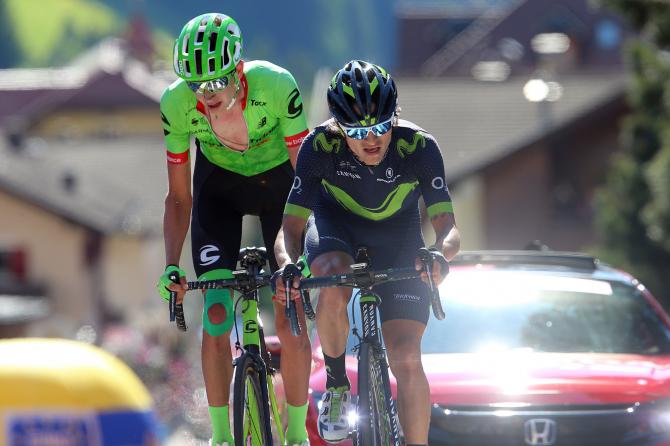
A call for more support
CN: In 2016, a Tweet of yours ended up in a major online controversy, involving the President of Colombia, Juan Manuel Santos because when he sent his congratulations to what Colombian cyclists had done in that year’s Tour, you Tweeted back that a lot of Colombian sport, including cycling was lacking a lot of financial support and you’d had to fend for yourselves. Have things got any better?
WA: It’s better, particularly since when I was a young rider, racing with the backing of government programs in Colombia. That Tweet got a lot of publicity, it’s true, but what bothered me at the time, speaking personally, is when politicians want to use a moment of success in a sport like cycling to gain votes. Riders have had to do almost everything to carve out their careers and then along come different politicians and pat themselves on the back for what they’ve done. Things are better now, I can’t say there aren’t any cycling education programs now, but even if we do get the support, they shouldn’t exploit that for political ends.
CN: So if you were the minister who decided where the Colombian government’s sports budget would go, how would you spend it? What’s the most urgent measures that are needed?
WA: You’d have to be fair. I would want to spend a lot of money on cycling, which is my sport, but there are other sports which need that money and which have been marginalised, too.
In cycling, there are more government-backed cycling education centres and programs for young racers than there used to be, but what we need to spend it on is on races, regional ones in particular, at the junior and pre-junior level. There are very few of those in that category.
Cycling is taking off again in Colombia, but it’s at the youngest level where we need investment, and at the same time, less pressure, so the kids don’t all think they have to become champions or there’s no point in racing. The important thing is that you like cycling, and the results will come by themselves.
Alasdair Fotheringham has been reporting on cycling since 1991. He has covered every Tour de France since 1992 bar one, as well as numerous other bike races of all shapes and sizes, ranging from the Olympic Games in 2008 to the now sadly defunct Subida a Urkiola hill climb in Spain. As well as working for Cyclingnews, he has also written for The Independent, The Guardian, ProCycling, The Express and Reuters.
